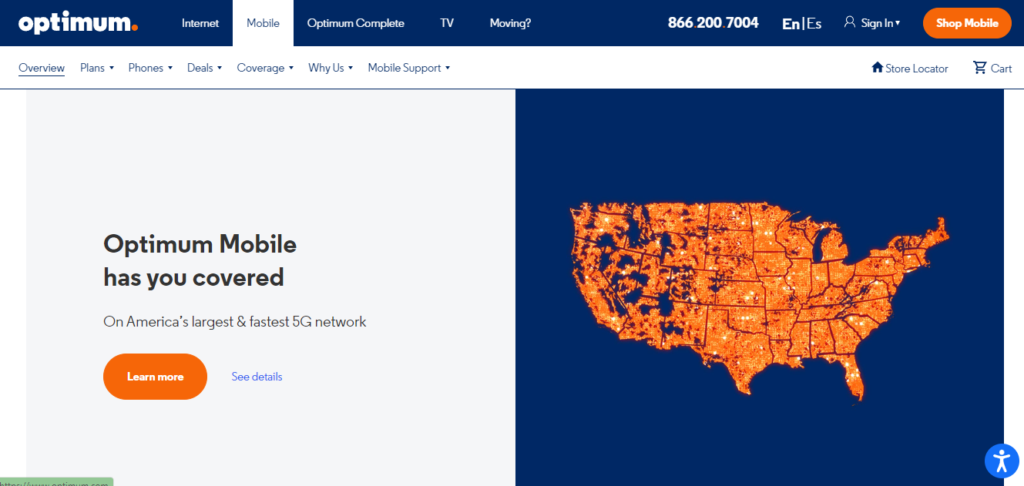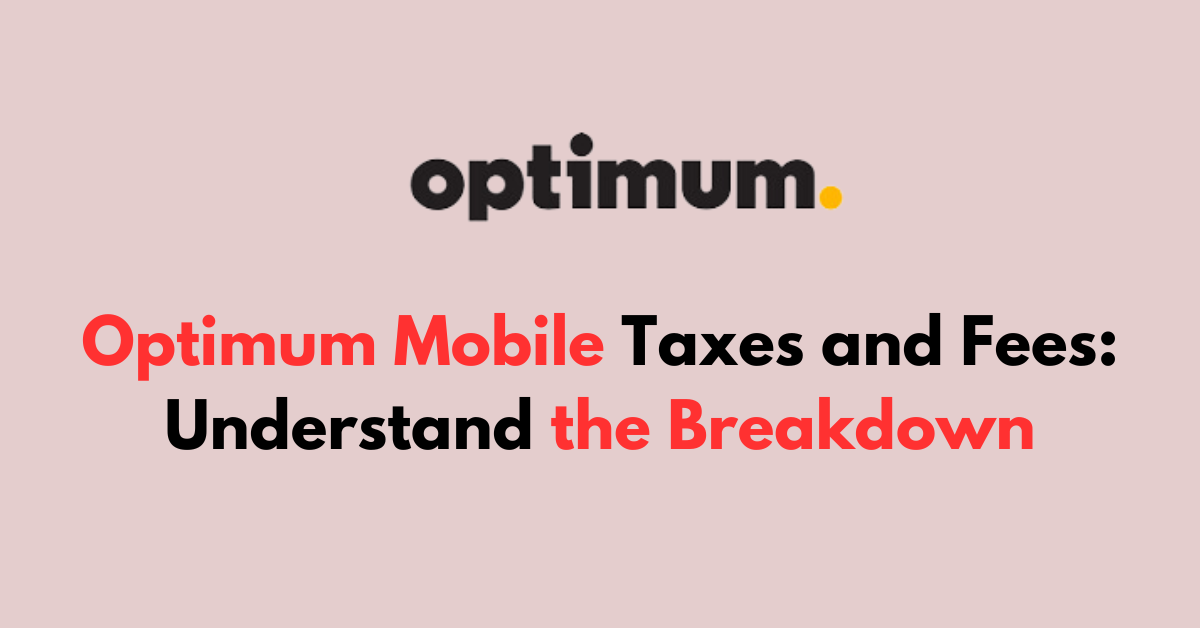When you pay for your phone service with Optimum Mobile, you might notice some extra charges on your bill. These are taxes and fees that the government or phone company adds.
The amount you pay can change depending on where you live and how much you use your phone.
This article will talk about these extra costs from Optimum Mobile so you know what to expect on your bill.
It’s good to learn about these fees if you’re thinking about using Optimum Mobile for your phone service.
What are Optimum Mobile Taxes and Fees?
When you receive your Optimum Mobile bill, you’ll notice various charges in addition to your service plan. These taxes, surcharges, and fees reflect the legal requirements and maintenance costs associated with your mobile services.
- Government Taxes & Fees: These are mandatory and vary by state. They support public resources such as 911 services and government programs.
- State and Local Taxes: Your bill includes these based on your location. Optimum Mobile collects them on behalf of your local government.
You may also see a detailed breakdown of these taxes and fees if you download the PDF version of your bill. Your online bill summary will typically show a combined total for these charges for all lines of service.
Besides the regular taxes, you may encounter additional fees, such as:
- Late Fee: Failure to pay your bill within two days of the due date results in a one-time $10 late fee.
When purchasing a phone, remember that you will have to pay taxes and fees at checkout.
Keep in mind that your bill can fluctuate based on the data plan you select, the devices you finance from Optimum Mobile, and the specific taxes and fees applicable in your state.
Understanding these charges ensures you’re informed about your mobile service bill.

What are the Types of Optimum Mobile Taxes?
When looking your Optimum Mobile bill, you will notice several types of taxes. These are mandated by various levels of government and can vary depending on where you live.
- Sales Tax: A percentage of your bill that goes to the state government. This can vary significantly from one state to another.
- Federal Universal Service Fund: This fee is charged across the board to support the provision of telecommunications services to rural and high-cost areas as well as low-income consumers.
- State 911 Fee: States charge this fee to fund emergency response services. It is not optional and is required by law.
- Telecommunications Relay Service Fund: This supports relay services for individuals with hearing or speech disabilities to communicate over the telephone.
- Gross Receipts Tax: Not all states will have this, but for those that do, it is a tax on the total gross revenues of the company and is reflected on your bill.
- Utility User Tax: Certain municipalities may apply this tax, which is charged on the consumption of utility services, including mobile services.
- Regulatory Assessment Fee: This nominal fee helps to recoup the costs of federal regulatory compliance.
- Administrative Fee: Optimum Mobile may include this fee which covers part of the costs of providing services, like billing and customer service.
Each of these taxes and fees is enumerated on your bill based on your service level and location.
It’s important to review these charges to fully understand your monthly mobile costs. These fees are institutionally driven and are generally non-negotiable.
How To Calculate Optimum Mobile Taxes?

When you review your Optimum Mobile bill, you’ll notice various taxes and fees. These charges are calculated based on the services you use and where you live.
1. Tax Rates by Region
The tax rate applicable to your Optimum Mobile service can differ significantly depending on your region. Your state and local governments dictate these rates.
For instance, states like New York might have higher telecommunications taxes than others, and even within a state, local surcharges and fees can vary.
2. Determining Taxable Services
Among the services you pay for, certain items are taxable under federal, state, and local laws. Your monthly service fee, data plan, and device charges all typically include a tax component.
Device payment plans may also incur taxes which are due at the time of purchase. Understanding which parts of your bill are taxable helps you better estimate the total amount due each month.
Strategies for Minimizing Optimum Mobile Taxes
When managing your Optimum Mobile billing, understanding how to leverage tax credits and deductions can result in noticeable savings on taxes and fees.
1. Utilizing Tax Credits
You may be eligible for state-specific tax credits that can reduce the overall amount of taxes on your Optimum Mobile bill.
It’s essential to check with your state’s Department of Revenue or a tax professional to identify credits applicable to your circumstances.
2. Optimizing Tax Deductions
Carefully itemize potential deductions related to your Optimum Mobile service, especially if you use your phone for business purposes.
To effectively claim these deductions, you must maintain detailed records that support the business use of your mobile service.
